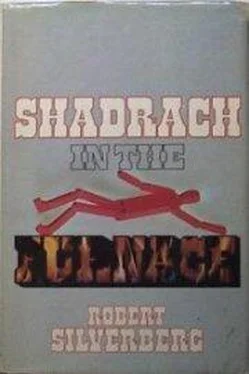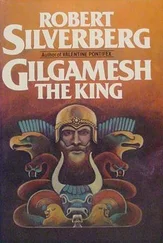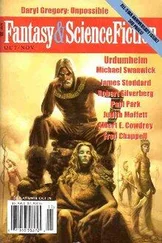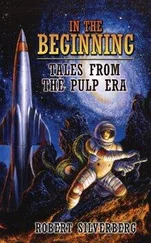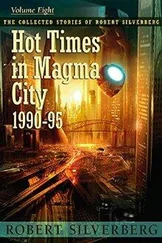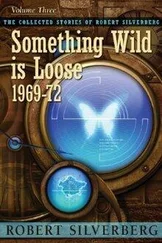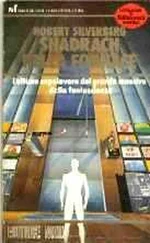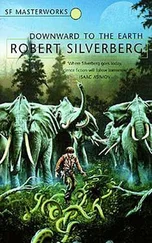“Please.”
“You have received this antidote yourself?”
Shadrach replies uneasily, after a moment’s consideration. “Yes. I have.”
“Ah. Because you are a doctor. Because we must keep the healers alive. I understand. It seemed to me you must have the antidote. There is something about you; you are like a man apart from us. You do not wake up every day wondering if this is the day when the rot will start in you. Ah. And someday we will have the antidote too.”
“Yes. Someday. The government is working on increasing the supply.” The lie sours his mouth. “I wish you could have your first injection today.”
“It is not important for me,” Das says calmly. “I am old and I have enjoyed good health, and my life has been a happy one even in the most troubled times. If the rot begins in me tomorrow, I will be ready for it. But my sons, and the sons of my sons, I would spare them. What do old wars mean to them? Why should they die horrible deaths for the sake of nations that were forgotten before they were born? I want them to live. My family has been in Kenya for a hundred fifty years, since we first came from Bombay, and we have been happy here, and why should we perish now? Sad, Doctor, sad. This curse on mankind. Will we ever cleanse ourselves of what we have done to ourselves?”
Shadrach shrugs. There is no way to comb the murderous new gene out of the genetic package; but in theory a permanent antidote is possible, a hybrid DNA that can be integrated into the contaminated genes to absorb or detoxify the lethal genetic material. Somewhere in the PRC organization they are at work on such an antidote, Shadrach has been told. Of course, the rumor may be false. The research group may be only a myth. The permanent antidote itself may be only a myth.
He says, “I think these last twenty years have been a purge that mankind necessarily had to undergo. A punishment for accumulated idiocies and foolishnesses, perhaps. The whole history of the twentieth century is like an arrow pointing straight to the Virus War and its aftermath. But I believe we’ll survive the ordeal.”
“And things will be again as they once were?”
Shadrach smiles. “I hope not. If we go back to where we were, we’ll only arrive again eventually at the same place we’ve reached now. And we may not survive the next version of the Virus War. No, I think we’ll build a better world out of the ruins, a quieter, less greedy world. It’ll take time. I’m not sure how we’re going to accomplish it. Many bad things will happen first. Millions will die needless, horrible deaths. But eventually — eventually — the suffering will be over, the dying will be done, and those who remain will live in happiness again,”
“How refreshing to hear such optimism.”
“Am I an optimist? I’ve never thought of myself that way. A realist, maybe. But not an optimist. How strange suddenly to find myself an apostle of faith and good cheer!”
“Your eyes were glowing when you said what you said. You were already living in that better world as you spoke. Do you want to withdraw your prophecy? Please, no. You believe that that happier world will come.”
“I hope it’ll come,” Shadrach says soberly.
“You know it will.”
“I’m not sure. Perhaps I sounded sure a moment ago, but — ” He shakes his head. He makes a determined effort to recapture that unexpected strain of positive thinking that had come so surprisingly from him a moment ago. “Yes,” he says. “Things will gel better.” Already there is something forced about it, but he goes on. ” No trend continues downward forever. The organ-rot can be defeated. The smaller population that exists now will be able to live comfortably in a world that couldn’t support the numbers of people who lived before the War. Yes. A purge, an ordeal by fire, a necessary corrective to old abuses, leading to better things. Dawn after the long darkness.”
“Ah. You are an optimist!”
“Perhaps I am. Sometimes.”
“I would like to see a man like you as the leader of that new world,” Bhishma Das exclaims rapturously.
Shadrach recoils. “No, not me. Let me live in that world, yes. But don’t ask me to govern it.”
“You will change your mind when the moment comes. They will offer you the government, Doctor, because you are wise and good, and you will accept. Because you are wise and good.” Das pours more tea. His naive faith is touching. Shadrach takes a sip; then he has a sudden morbid vision of Bhishma Das, a year or iwo from now, crying out in surprise and delight as the new Chairman of the Permanent Revolutionary Committee appears for the first time on his television screen, and the face of the new Chairman is the finely wrought brown-skinned face of that wise and good American doctor who once visited his store. Shadrach coughs and sputters and nearly spills his cup. The face will be the face of Dr. Mordecai, yes, but the mind behind the warm searching eyes will be the cold dark mind of Genghis Mao.
Shadrach has almost managed to forget Project Avatar, this day in Nairobi. Almost.
“I should be going,” Shadrach says. “It’s late in the day. You’ll want to close the shop.”
“Stay awhile. There is no hurry.” Then: “I invite you to my home for dinner this evening.”
“I’m afraid I can’t—”
“Another engagement? Oh, how regrettable. We would provide a fine curry in your honor. We would open a fine wine. Some close friends — the most stimulating members of the Hindu community, professional people, teachers, philosophers — intelligent conversation — ah, yes, yes, a delightful evening, if you would grace our home!”
A temptation. Shadrach will dine alone, otherwise, at his hotel, a stranger in this strange city, lonely and in peril. But no: impossible. One of those stimulating Hindu professional persons will surely ask him where he lives, what kind of doctoring he does, and either he must lie, which is repugnant to him, or he must let it all spill out — member of privileged dictatorial elite, physician to the terrifying Genghis Mao, etc., etc., and so much for his new reputation as a humanitarian benefactor: the truth about him will sicken the friends of Bhishma Das and humiliate poor Das himself. Shadrach mumbles sincere-sounding excuses and regrets. As he edges to the door, Das follows him, saying, “At least accept a gift from me, a remembrance of this charming hour.” The merchant glances hastily about his shelves, searching among the spears, the beaded necklaces, the wooden statuettes, everything apparently too crude, too flimsy, too inexpensive, or too awkwardly large to make a fitting offering for such a distinguished guest, and it seems for an instant that Shadrach will get out of the place ungifted; but at the last moment Das snatches up a small antelope horn in which a hole has been drilled at the pointed end and plugged with wax. A cupping horn, Das explains, used by a tribe near the southern border to draw pain and evil spirits from the bodies of the sick: one applies the cup to the skin, sucks, creates a vacuum, seals it with the wax plug. He urges it on Shadrach, saying it is an appropriate gift for a healer, and Shadrach, after a conventional show of reluctance, accepts gladly. He has no East African medical devices in his collection. “They still use these,” Das informs him. “They use them very much just now, to draw forth the organ-rot spirit.” He bows Shadrach from the store, telling him again and again what an honor his visit has been, what pleasure has come from hearing the doctor’s words of hope.
On the seven-block journey back to the hotel Shadrach counts four dead bodies in the streets, and one that is not quite dead, but will be soon. ”
In the morning he flies onward, toward Jerusalem. He is aware of the curve of the planet below him, the enormous belly of the world, and he is amazed anew by its complexity, its richness, this globe that holds Athens and Samarkand, Lhasa and Rangoon, Timbuktu, Benares, Chartres, Ghent, all the fascinating works of vanishing mankind, and all the natural wonders, the Grand Canyon, the Amazon, the Himalayas, the Sahara — so much, so much, for one small cosmic lump, such variety, such magnificent multitudinousness. And it is all his, for whatever time remains before Genghis Mao calls upon him to yield up the world and go.
Читать дальше
